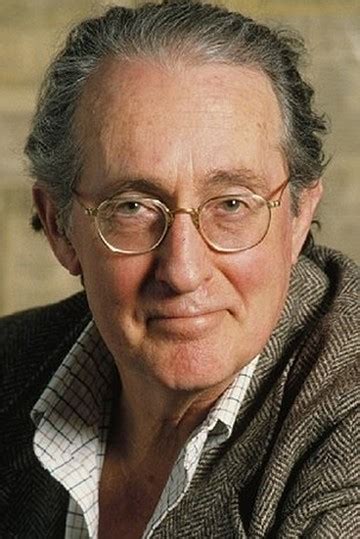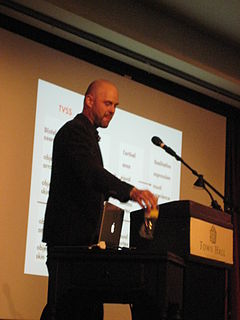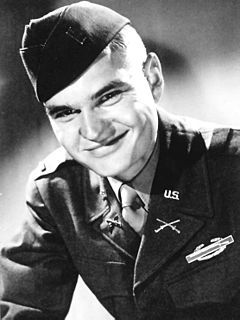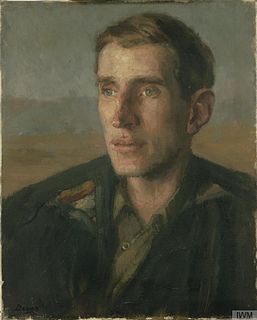Top 743 Exploration Quotes & Sayings - Page 13
Explore popular Exploration quotes.
Last updated on April 16, 2025.
I think happiness is a choice. I believe luck is your attitude. It sounds like a really annoying bumper sticker. But there is such a great truth in that. You choose how you want to feel about what happens to you. I could have been a miserable failure. I haven't had anybody looking over me, and I've found my own way through optimistic exploration and fire-burning mistakes. I am a very happy person with an extraordinary life, so I must be doing a lot of things right. I really believe when you peel away the layers, the worlds is a beautiful place filled with beautiful people.
It was at Harvard not quite forty years ago that I went into an anechoic [totally silent] chamber not expecting in that silent room to hear two sounds: one high, my nervous system in operation, one low, my blood in circulation. The reason I did not expect to hear those two sounds was that they were set into vibration without any intention on my part. That experience gave my life direction, the exploration of nonintention. No one else was doing that. I would do it for us. I did not know immediately what I was doing, nor, after all these years, have I found out much. I compose music.
Cooperating in something as visible as space exploration and space flight can only improve relations between the two countries because what happens is, you're working on a common project in a very visible light and so, you're motivated to not have conflicts with each other in other areas. And bringing up China is a good example. In the early '90's, China got serious about wanting to launch astronauts into space and they were actually quite successful in launching many communication satellites. They went ahead and in 2003 they launched their first astronaut into space.
Our ignorance of the cosmos is too vast to commit to atheism, and yet we know too much to commit to a particular religion. A third position, agnosticism, is often an uninteresting stance in which a person simply questions whether his traditional religious story (say, a man with a beard on a cloud) is true or not true. But with Possibilianism I’m hoping to define a new position - one that emphasizes the exploration of new, unconsidered possibilities. Possibilianism is comfortable holding multiple ideas in mind; it is not interested in committing to any particular story.
I really lucked out with that song ["As Cool As I Am"]. Men were becoming much more comfortable with all the different facets and parts of their identity, including their gentler, funnier, sillier, nurturing parts. They started showing up. There was so much exploration of gender at that time. Women were showing up with the range of ways of being female in the world and men were showing up with the range of being male in the world.
The secret of the world is this: the world is entirely circular and you will go round and round endlessly, never finding what you want, unless you have found what you really want inside yourself. When you follow a star you know you will never reach that star; rather it will guide you to where you want to go. Its a reference point, not an end in itself, even though you seem to be following it. So it is with the world. It will only ever lead you back to yourself. The end of all your exploring will be to cease from exploration and know the place for the first time.
Mars is the next frontier, what the Wild West was, what America was 500 years ago. It's time to strike out anew....Mars is where the action is for the next thousand years....The characteristic of human nature, and perhaps our simian branch of the family, is curiosity and exploration. When we stop doing that, we won't be humans anymore. I've seen far more in my lifetime than I ever dreamed. Many of our problems on Earth can only be solved by space technology....The next step is in space. It's inevitable.
His lips hovered over hers. “No,” he snarled. Madison wasn’t sure to whom he was talking, but then his mouth was crushing hers, and her world became him—the touch and feel of his lips pressing down, forcing hers to respond. It wasn’t a gentle kiss or a sweet exploration. It was angry and raw, breathtaking and soul burning. Right now, she didn’t want gentle. She wanted hard and fast, him and her, on the floor, even the bear rug, both of them naked and sweating.
The physical domain of the country had its counterpart in me. The trails I made led outward into the hills and swamps, but they led inward also. And from the study of things underfoot, and from reading and thinking, came a kind of exploration, myself and the land. In time the two became one in my mind. With the gathering force of an essential thing realizing itself out of early ground, I faced in myself a passionate and tenacious longing--- to put away thought forever, and all the trouble it brings, all but the nearest desire, direct and searching.
So long as our textbooks hide from us the roles that people of color have played in exploration, from at least 6000 BC to the twentieth century, they encourage us to look to Europe and its extensions as the seat of all knowledge and intelligence. So long as they say “discover,” they imply that whites are the only people who really matter. So long as they simply celebrate Columbus, rather than teach both sides of his exploit, they encourage us to identify with white Western exploitation rather than study it.
Writing fiction, for me, is a more indirect form of self-exploration than writing verse. When I'm working on a novel I'm moving characters around and I'm thinking about plot and there's a lot of other things going on at the level of structure and story. With a poem, a single idea or line or emotion can sometimes be enough - there's often a sense, in the best poems, of capturing a single instant. Perhaps poems differ from prose in the degree of solace they can offer - by speaking so personally, so directly, about shared experience. A few lines of poetry can provide comfort.
When winter fails to provide an adequate snow base, my boys bring their sleds in the house and ride them down the stairs. Just the other day, my wife found them with a rope out their second-story bedroom window, preparing to rappel down the side of the house. The recipe for fun is pretty simple raising boys: Add to any activity an element of danger, stir in a little exploration, add a dash of destruction, and you've got yourself a winner.
Progress is the exploration of our own error. Evolution is a consolidation of what have always begun as errors. And errors are of two kinds: errors that turn out to be true and errors that turn out to be false (which are most of them). But they both have the same character of being an imaginative speculation. I say all this because I want very much to talk about the human side of discovery and progress, and it seems to me terribly important to say this in an age in which most non-scientists are feeling a kind of loss of nerve.
Perceiving how things are is a mode of exploring how things appear. How they appear is, however, an aspect of how they are. To explore appearance is thus to explore the environment, the world. To discover how things are, from how they appear, is to discover an order or pattern in their appearance. The process of perceiving, of finding out how things are, is a process of meeting the world; it is an activity of skillful exploration.
Cognitive states of mind are seldom addictive, since they depend upon exploration of the world, and the individual encounter with the individual object, whose appeal is outside the subject's control. Addiction arises when the subject has full control over a pleasure and can ponder it at will. It is primarily a matter of sensory pleasure, and involves a kind of short-circuiting of the pleasure network. Addiction is characterized by a loss of the emotional dynamic that would otherwise govern an outward-directed, cognitively creative life.
Everything about your life, about your body, grows! Your cells regenerate; your hair, your nails, everything grows for your entire life. And your soul needs exploration and growth. And the only way you'll get it is by forcing yourself to be uncomfortable. Forcing yourself to get outside, out of your head.
The progress of science has always been the result of a close interplay between our concepts of the universe and our observations on nature. The former can only evolve out of the latter and yet the latter is also conditioned greatly by the former. Thus in our exploration of nature, the interplay between our concepts and our observations may sometimes lead to totally unexpected aspects among already familiar phenomena.
I read a ton of nonfiction. I tend to read about a lot of very extreme situations, life-or-death situations. I'm very interested in books about Arctic exploration or about doomed Apollo missions. I tend to read a lot of nonfiction that's sort of hyperbolic and visceral. And then I kind of draw on my own personal experiences and my own sort of generic life experience, and I kind of try to feed my day-to-day reality that I have with sort of high stakes reference points that I read about. They're things everyone can relate to.
How often do our heroes stand still? It's hard to imagine Spock and Kirk landing on a planet and just relaxing for a month or two. Just hanging out has nothing to do with boldly going where no one has gone before. What makes us different from every other creature is that we go places, places we've not gone before. We do it willingly, and often. What makes our work and our life interesting is discovery, surprise, and the risk of exploration.
Exploration belongs to the Renaissance, travel to the bourgeois age, tourism to our proletarian moment.The explorer seeks theundiscovered, the traveler that which has been discovered by the mind working in history,the tourist that which has been discovered by entrepreneurship and prepared for him by the arts of mass publicity.If the explorer moves toward the risks of the formless and the unknown, the tourist moves toward the security of pure cliché. It is between these two poles that the traveler mediates.
For me, exploration was a personal venture. I did not go to the Arabian desert to collect plants nor to make a map; such things were incidental. At heart I knew that to write or even to talk of my travels was to tarnish the achievement. I went there to find peace in the hardship of desert travel and the company of desert peoples. I set myself a goal on these journeys, and, although the goal itself was unimportant, its attainment had to be worth every effort and sacrifice... No, it is not the goal but the way there that matters, and the harder the way the more worth while the journey.
It is a great thing to be at your age... You are at a very specific time of age ... an age where you can follow all your dreams. But also at an age when you can change-you can change your dreams, you can change paths. When you start something when you're young, you should not decide 'this is it, this is my way and I will go all the way.' You have the age where you can change. You get experience, and maybe dislike it and go another way. Your age is still an age of exploration.
This is a glorious biography ... The time is ripe for a new biography of Edith Wharton of this intimacy and on this scale ... Lee the biographer pursues her subject down every winding corridor, into every hidden passage and dark corner ... Her critical exploration of Edith Whartons work is dazzlingly assured ... A feat of exhaustive research, and finely tuned to Whartons creative achievement at the same time ... [Wharton] could scarcely have failed to be impressed by ... its artistic sympathy, its sonorous depths, and its soaring conception.






















